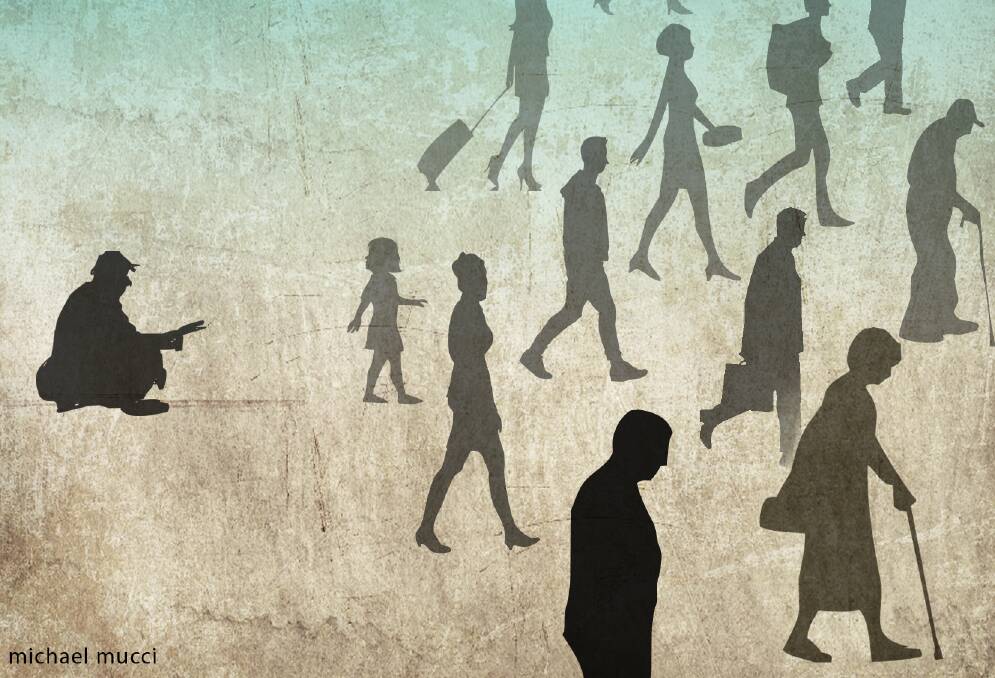
The common perception of someone experiencing homelessness is an old man with a drinking or drug problem and mental health issues who sleeps in a park or doorway. I hear people say “homeless people” bring it upon themselves, don’t want to change or that they just need to get off the drugs. This perception is far from the reality of the people experiencing homelessness.
Subscribe now for unlimited access.
$0/
(min cost $0)
or signup to continue reading
Only 7 per cent of people experiencing homelessness have mental health and substance abuse issues. Many (31 per cent) are escaping domestic violence or have relationship issues. The other main contributing factors are inadequate and inappropriate dwellings (28 per cent), financial issues and unemployment (22 per cent) and transitioning from care or custody (12 per cent).
Homelessness affects men, women and children from a wide range of backgrounds – employed and unemployed. The problem is masked by the fact that people move from one temporary solution to another. If you had a friend or family member who had to leave their home, you would no doubt help. But some people don’t have social supports or are too ashamed to reach out.
While 56 per cent of people who are experiencing homelessness are male, the number of older women experiencing homelessness has risen significantly. Being over 45, renting and single, increases a woman's risk of becoming homeless. Sadly, children and young people are disproportionately affected by homelessness. More than half of the people seeking help from Specialist Homelessness Services are under 25, and a third are under 17.
People who sleep on the streets or under makeshift dwellings represent only 6 per cent of the homeless population. The other 94 per cent are ‘hidden homeless’ – moving between family members’ homes or ‘couch surfing’ at a friend’s place.
Increasingly, homelessness is the reality for people who have been managing well in life but are thrown off course by a relationship break-up, job loss, or death or a loved one. Such uncertainty can take an enormous toll on a person’s self-worth, capacity to go to school, study, find work and stay healthy.
We can ALL be two pay weeks away from homelessness. I have experienced homelessness and know first hand it can happen to any of us. Homelessness is also the result of a shortage of affordable housing. That shortage is continuing to make getting out of homelessness more difficult for people.
What can you do? Be part of an inclusive community, rather than an exclusive one. Break down perceptions and barriers and raise awareness about the facts of homelessness. Homelessness is not a disease. Support a specialist homeless support service. Join the local Big Ideas Homelessness Network or get involved in the Hunter Homeless Connect Day. When you connect with people experiencing homelessness, hear their stories, you’ll see more similarities than differences. Call on political leaders to make the changes needed to end homelessness.
Last week 20 local businesses, organisations and councils signed a pledge to end homelessness. This symbolic and practical initiative of the Big Ideas Homelessness Network commits people to do what they can to help end homelessness or to make sure their actions or policies don’t contribute to homelessness.
You can sign the pledge too at bigideashomelessnessnetwork.org.

